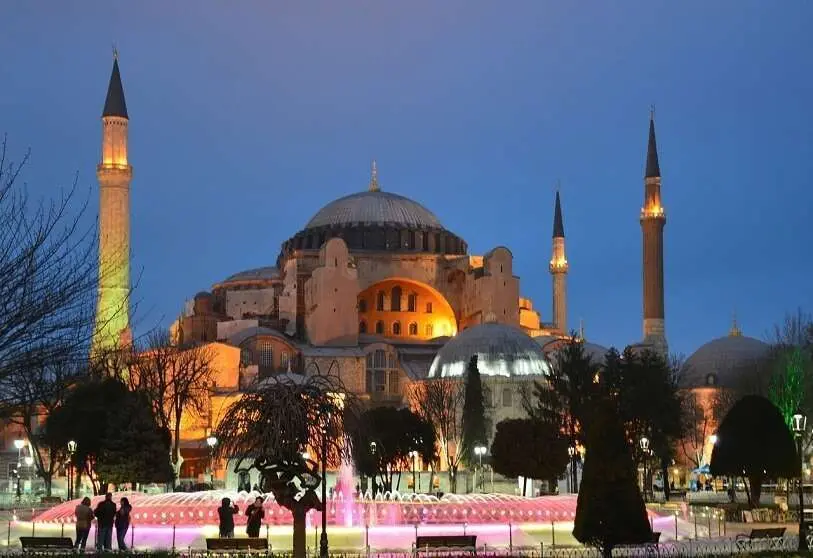Hagia Sophia and interest rates

The President of Turkey, Recep Tayyip Erdogan, has taken a very relevant step in his constant flight forward since a few months, or rather, a few years ago, he decided to respond to the European Union's slamming of the door with the recovery of the Ottoman Empire. The signing of the decree that converts Hagia Sophia into a mosque and makes it available for Muslim worship from 24 July is a populist decision that seeks, in addition to the impact on both the interior and exterior of Turkey and the demonstration of a determined desire for the constant Islamisation of the country in order to put an end to Atatürk's secular revolution in the 1920s and 1930s, to distract attention from the precarious economic situation that Turkish citizens suffer on a daily basis.
Erdogan says that Hagia Sophia will be open to all visitors, local and international, Muslim and non-Muslim. However, UNESCO, where Hagia Sophia is registered as a World Heritage Site with three million visitors annually, reminds us of the series of commitments and obligations undertaken. No doubt the Turkish authorities will have to be pragmatic in managing worship hours with museum hours in order to continue to contemplate the Byzantine mosaics and maintain income and tourist attraction. But Erdogan's objective of going down in history as the gravedigger of modern Turkey with Atatürk's secular and secular reforms is achieving goals within a strategy that the Turkish president has been improvising in the last two years due to the political and economic setbacks he has suffered.
His problems lie in the difficulties of renewing his presidential mandate, with several electoral appointments where he could not prevent the entry of a pro-Kurdish party into Parliament; the loss of the mayoral offices in Istanbul and Ankara last year with a repeat of the vote included, reaping a major defeat; and the end of the economic miracle that has become a serious daily crisis for millions of people. According to a local survey conducted by the company Metropoll, 44% of Turks interviewed say that the conversion of Hagia Sophia is a maneuver to hide the precariousness they endure. The data reflect a harsh reality: low liquidity, inflation in June of 12.6%, unemployment at 12.8%, dwindling foreign reserves, debt at around $240 billion, a 23% drop in industrial production in May, a devalued Lira and a monetary policy without credibility with negative real interest rates.
Meanwhile, Erdogan continues his aggressive military intervention in Syria, Libya, Somalia and targets the Sahel and Sahara. It does not seem that his relationship with Qatar, Russia and Iran will solve the serious economic problems caused by his grandiloquent intention to become a great power in the region, even confronting his NATO allies, as happened with the French frigates. Erdogan does not touch interest rates, he uses Hagia Sophia with unfriendly consequences.

